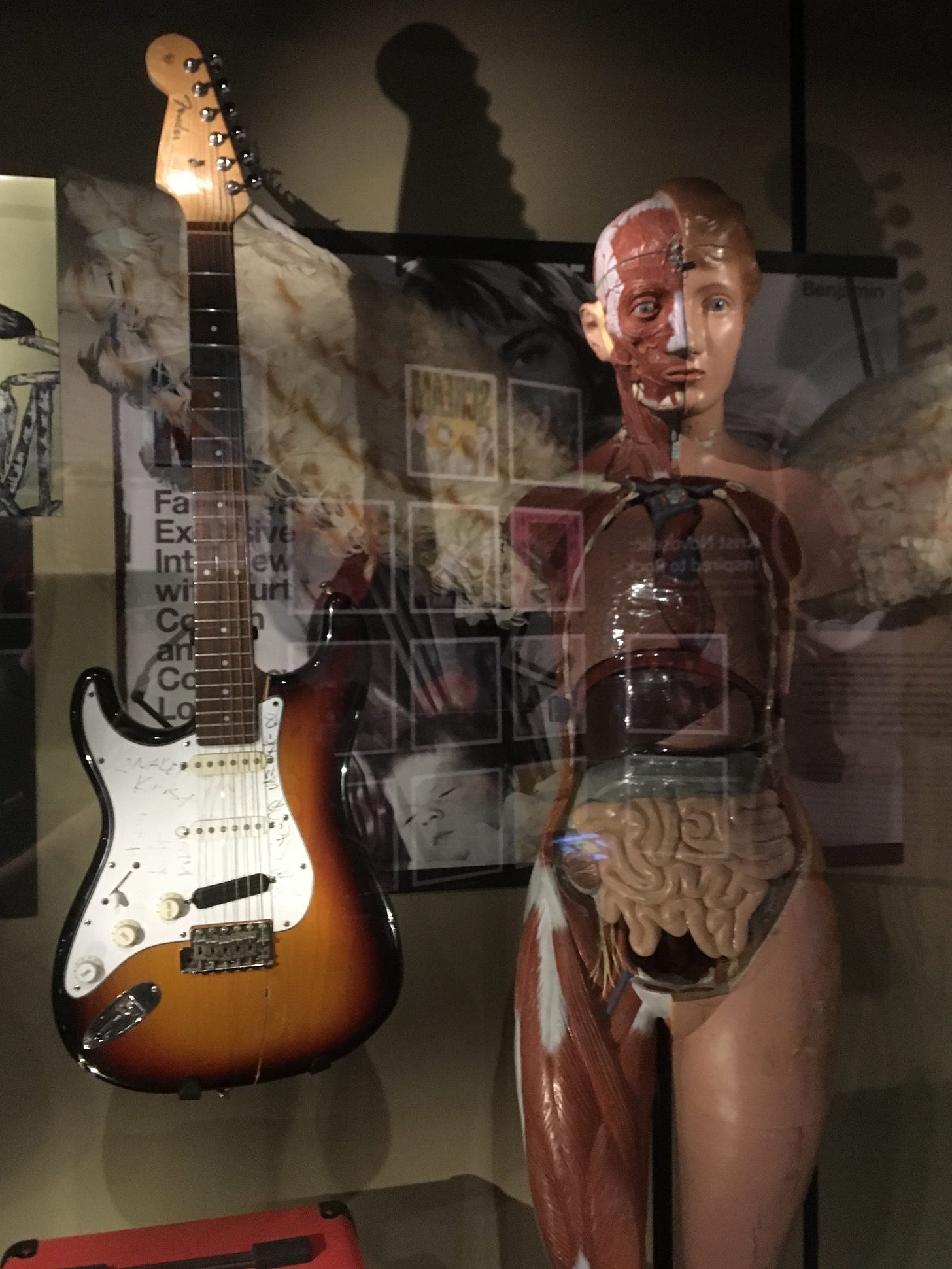Behind the Words: Madrona
30 years since my mate Duncan, who had MTV (I didn’t) called (on the landline, obvs) and said “turn on the TV. Kurt Cobain is dead.”
30 years.
30 Fucking Years.
I’ve been saying that all week. At random intervals. To whomever is in the room.
30 Fucking Years.
I posted the chapter “Madrona” half an hour or so ago. To put in in context, in 2019, as I was approaching my 40th birthday, I went to Seattle on a grunge pilgrimage. I spent two weeks in Seattle, with a couple of days in Portland. I went everywhere I could think that had any connection with 90’s music. I interviewed Charles Peterson, the photographer responsible for pretty much every picture of Kurt you have in your head, as well as all those pictures of Chris Cornell with his top off. I also interviewed Jacob McMurray at MoPOP, the guy behind the Nirvana: Taking Punk to the Masses and Pearl Jam: Home and Away exhibitions.
I then wrote a book. A non-fiction book that looks like a novel. It’s fiction, but 100 percent true. It’s my Nick Hornby midlife crisis book. It’s the weirdest, most honest, most beautiful shit I’ve ever written in my life. I think it’s fucking great. So far, no one wants to publish it. It’s a bit too weird. A bit too niche. A bit too honest. Probably won’t sell much. Classic Maloney.
It’s still available if anyone fancies publishing it.
When I realised it was 30 years, I went down a bit of a rabbit hole. I’ve been listening to Nirvana non-stop, playing their songs on my guitar, watching clips and docs on YouTube. I’ve been reliving that trip. Especially the day I visited Kurt’s house. I stood outside the house I watched on TV, on Duncan’s MTV News, and felt those emotions hit me again. Hit me, and the other 40-something-year-old people in that park. Kurt meant something, as fucking dumb-ass cliched as it sounds. He was a symbol, even if he shouldn’t have been, didn’t want to be. He articulated something in his life—watch him play “Territorial Pissings” on Jonathan Ross and tell me it means nothing—and articulated something with his death.
For better or worse, the 90s shaped me, made me who I am. As I argue in my book, wherever you draw the date line, I am part of Gen X because the people, the art, the philosophy that shaped me is Gen X. As a middle-aged (I hope) man, watching my youth on YouTube, I am delighted that I can still remember the excitement of what Nirvana on The Word meant. The visceral reaction to that music is still there, somewhere under my skin, deep in my heart. I remember, physically, how it felt to hear that, see that, live that music, and I am thankful for that. A student said to me this week, “You saw that? Like, you watched it when it was on TV the first time?” I saw that. I was there for that. I am fucking thankful for that.
To quote Ginger Wildheart, I’m going to miss Kurt Cobain.




